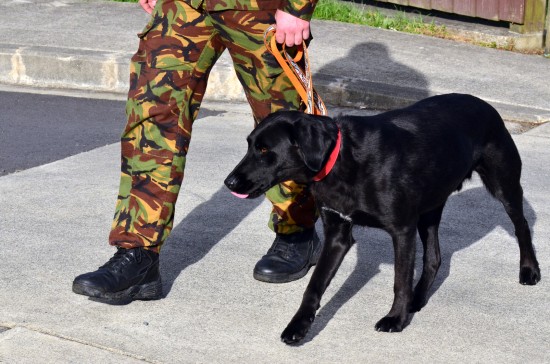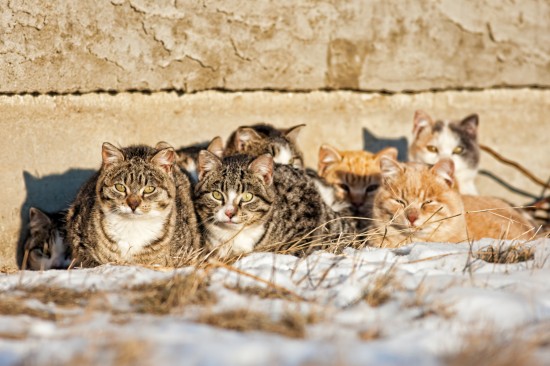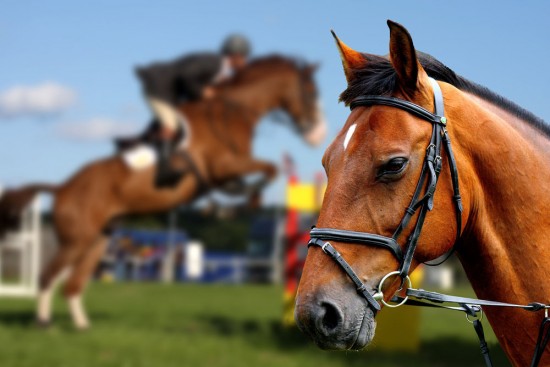
Sarcoma, melanoma, carcinoma: A diagnosis of cancer in your beloved horse can be emotionally devastating. Often you are urged to make immediate treatment (and financial) decisions while you are still dealing with the shock. So what can you do?
First – breathe, and don’t allow yourself to be pushed into making knee-jerk decisions. Remember, it is not only okay to question your veterinarian - it is imperative! Ask for an informed prognosis, and inquire about your vet’s direct experience dealing with this, or any, form of cancer. Many vets have extensive trauma experience but little or no background with cancer. And remember, though the word cancer may be charged with fear for both you and your vet, it has no meaning for your horse.
Second - get a written estimate for the cost of any recommended treatment. Find out the typical survival rates that THIS vet has personally experienced for the types of treatment offered, and how the treatment can affect quality of life. For instance, chemotherapy may offer little life extension and can cause painful side effects; surgery may be extremely debilitating and may not improve the prognosis. Such treatments may have to be repeated, as they do not address the underlying cause of the cancer. If the cancer has progressed far enough that the horse is likely to be in pain no matter what, then discuss euthanasia.
Now What? Once you have decided to bring your horse back to health, start by evaluating your animal’s diet and routine for known carcinogens and toxins:
• Are you feeding chemically preserved feeds? (If you are feeding any typical commercial feed the answer is probably “Yes”.)
• Are you using toxins such as paste wormers or feed-through fly control programs? In other words - “Poisoning your way toward health?”
• Does your barn use chemical fly sprays - especially automatic misters?
• Are their hidden sugar bombs in your horse’s diet (sweet feed, beet pulp, treats, molasses)? Sugar feeds cancer.
• Do you vaccinate your horses more than once a year - of for diseases that are easily treatable? This can actually suppress the immune system!
• Is your barn water less than pure?
If you answered yes to any of these questions, these may be part of your problem. Provide your horse with a superior, chemical-free diet and clean water. Find a local provider of organic or tested-chemical free grains for your horse. If your horse is on chlorinated or fluoridated water look into filters. Clean water is the best way to flush out toxins.
Next: Help the body to cleanse and strengthen the immune system:
Detoxification and support of the liver, kidneys and lymph system can assist the body’s ability to heal and make it easier for your horse to recover - no matter what treatment you choose.
Support the immune system. This is our greatest protector against disease. But the immune system can be weakened by over-vaccination, chemical toxins and poor nutrition. Build it up! Herbal supplements, good amino-acid chelated mineral and vitamin products, and even homeopathics have been shown to greatly stimulate immune function. Use probiotics to keep the digestive tract -- the largest portion of the immune system – functioning at optimum levels.
Help your horse's cells to breathe. This may sound strange, but cancerous cells are ALL anerobic. Oxygenating the body can help as cancer is susceptible to a high oxygen field. Does your vet offer ozone therapy? Oral ozone products are now available to help flood the body with oxygen via the digestive tract. Chlorophyll helps the blood carry more oxygen. These products also help with detoxification.
Finally: Do your homework
* Is there a local vet with experience with anti-cancerous herbs such as graviola? Homeopathics? Ozone? What about laser heat induction or pH treatment with cesium? Check out the AHVMA (Am. Holistic Veterinary Assoc.) for holistic vets in your area. Just being holistic doesn’t guarantee experience with cancer - but, in my experience, it improves the chances of an open mind.
* Remember, never vaccinate a sick horse. Any horse with cancer - from sarcomas to melanomas, has a compromised immune system and, in my opinion, should NEVER be vaccinated. Even the vaccine label says not to vaccinate a sick animal. An alternative to traditional vaccination that is much easier on the horse is use homeopathic nosodes.
Don’t try to do it all alone! Work with someone you trust to help you make decisions and do the research. Find someone knowledgeable or with a practical side who can help you stay focused on outcomes not overwhelmed with details.
Finally, find the thankfulness within you. Be grateful that your equine friend has survived the poisons that created the cancer originally. You have more time together and a great chance for recovery. Look for the beauty in every day together and take the time to notice what is healthy and shiny in addition to what is having difficulties. Let your beautiful companion know that you appreciate the lessons you have learned together and acknowledge the joy of your partnership. Focus on Recovery - not the disease. We bring to us what we focus on - focus on HEALTH!
 Something Smells Funny – How Your Family Pet is Destroying Your Home
Something Smells Funny – How Your Family Pet is Destroying Your Home
 Vintage Dogs - Dogs In The 1940s And 1950s
Vintage Dogs - Dogs In The 1940s And 1950s
 An Exercise In Exercise Patient: Why The Dog Is Banned From Future Workouts
An Exercise In Exercise Patient: Why The Dog Is Banned From Future Workouts
 Few reasons for why are your pets getting affected by Fleas and Ticks?
Few reasons for why are your pets getting affected by Fleas and Ticks?
 Can Feral Cats Really Be Tamed?
Can Feral Cats Really Be Tamed?
 Show Jumping
Show Jumping
Copyright © 2005-2016 Pet Information All Rights Reserved
Contact us: www162date@outlook.com